1. You Need a Brand-New RV to Start Camping
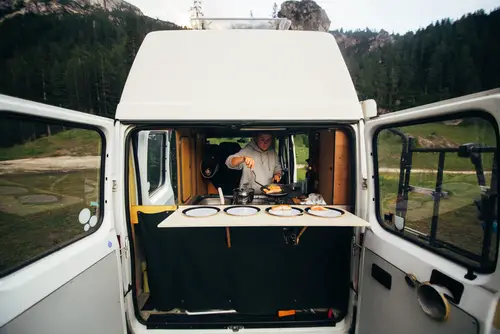
A lot of people assume that if they don’t buy a shiny, brand-new rig, they’re setting themselves up for failure. The truth is, plenty of well-maintained used RVs can give you the same comfort for a fraction of the price. New RVs depreciate heavily the second they leave the lot, which can lock new RVers into big payments before they even know if the lifestyle fits. Buying used or even renting first can save thousands and help you test the waters.
This myth keeps people broke because they sink their money into something they might outgrow in just a few seasons. If your RV ends up sitting in storage most of the year, those monthly payments will sting. A modest used RV also leaves you more budget for upgrades or travel itself. Starting small makes camping more approachable and less financially overwhelming.
2. Campgrounds Are Always Cheap
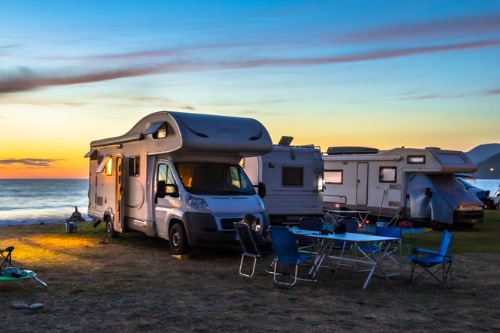
Many newbies imagine camping is automatically less expensive than hotels or Airbnbs. While some public campgrounds can be very affordable, private RV parks with hookups often cost $50–$100 per night. Factor in resort-style amenities, and it’s easy to spend more than you would at a budget hotel. This misconception can quickly derail your budget if you’re not careful.
It’s worth researching membership programs, state parks, or boondocking options that can cut down costs. Having flexibility in where you stay makes RV travel much less stressful on your wallet. The assumption that every campground is cheap sets you up for sticker shock. Planning ahead helps you balance comfort with cost.
3. Bigger Rigs Are Always Better

A lot of new RVers are tempted to buy the largest rig they can afford, thinking it’ll guarantee comfort. While extra space sounds appealing, bigger rigs are harder to maneuver, require larger campsites, and often come with higher fuel costs. They can also limit your access to some national parks and smaller campgrounds. This “bigger is better” thinking often turns into frustration once reality sets in.
The costs of ownership rise with size, too—bigger tires, more maintenance, and higher insurance. For many campers, a smaller RV provides enough comfort while keeping travel simple and affordable. Plus, learning to drive and park is much easier in a mid-size rig. Choosing something manageable from the start often leads to a happier experience.
4. Boondocking Is Free and Easy

The idea of camping off-grid for free sounds like the ultimate budget hack. But true boondocking requires knowledge of where it’s allowed, how to manage your power and water, and sometimes investing in solar or extra batteries. Without preparation, new RVers often find it stressful rather than liberating. It’s not as simple as just pulling over anywhere you want.
While boondocking can save you campground fees, the upfront investment in gear can add up. You also need to think about waste disposal, safety, and finding legal spots. Beginners often underestimate how quickly tanks fill up or batteries drain. With practice, it’s rewarding—but it’s not “free” in the way many assume.
5. Every RV Park Has the Same Amenities
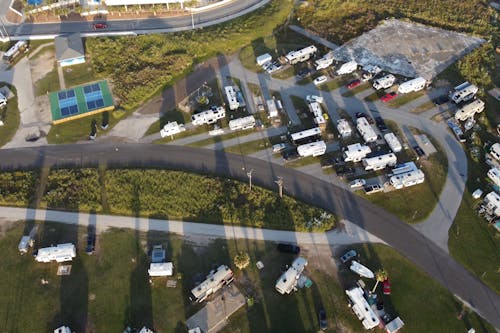
First-timers often expect every park to have full hookups, reliable Wi-Fi, and level sites. In reality, amenities vary widely, and some parks charge extra for basics like showers or laundry. Rural locations may not have strong cell service, which can frustrate those who need to stay connected. Assuming everything is standardized sets up disappointment.
Checking reviews and campground websites before booking can save you headaches. Some of the most scenic locations come with fewer conveniences, so knowing what you value most is key. It’s not that these places are bad, they just may not match your expectations. This myth trips up newbies who don’t do their homework.
6. Maintenance Is Rarely Needed
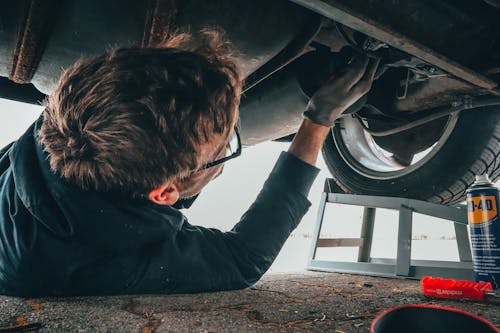
Many people think once they’ve bought their RV, it’s ready to roll with minimal upkeep. In truth, RVs are like rolling houses that bounce down the highway, and things break more often than you’d expect. Seals need resealing, tires need constant monitoring, and appliances require care. Neglecting maintenance can turn small problems into expensive disasters.
The “set it and forget it” mindset keeps people broke because repair bills pile up quickly. Regular checkups and small DIY fixes are far cheaper than waiting for breakdowns. A realistic maintenance budget saves you stress on the road. Understanding this from the start helps new RVers avoid the trap of surprise costs.
7. Fuel Costs Are Always Manageable

New RVers sometimes underestimate just how much gas or diesel an RV consumes. Depending on the size, you may only get 6–10 miles per gallon. Long trips quickly add up, and rising fuel prices can hit hard. This catches people off guard when they assumed camping meant cheap travel.
Budgeting fuel costs realistically helps avoid unpleasant surprises. Planning shorter trips or staying longer in each location can offset expenses. A smaller rig or slower driving also helps stretch mileage. Ignoring fuel efficiency is a recipe for frustration and financial strain.
8. You Don’t Need to Worry About Weight Limits
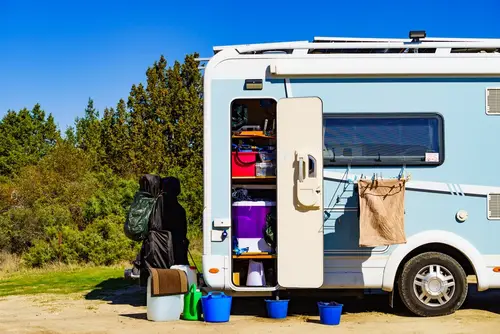
It’s easy to assume you can load up an RV with anything you’d pack in a house. But every rig has strict weight and towing limits for safety. Overloading can strain the engine, damage tires, and even cause dangerous handling issues. Ignoring these numbers can lead to expensive repairs and safety risks.
Many new RVers don’t even realize their truck may not be rated to tow the camper they buy. Learning your Gross Vehicle Weight Rating (GVWR) and payload capacity is essential. Smart packing and weighing your rig regularly keep you safe and legal. Skipping this step can turn your dream trip into a breakdown nightmare.
9. Insurance Isn’t Necessary for All RVs
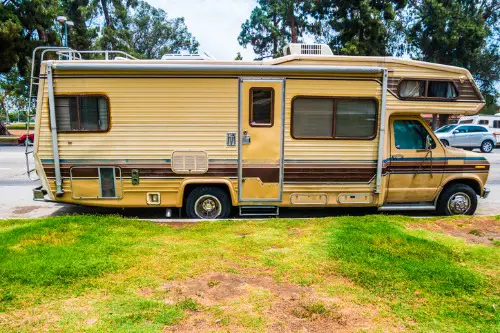
Some newcomers think insurance is optional, especially if they only camp a few weekends a year. But RV-specific insurance often covers situations that auto policies don’t, like personal belongings, roadside assistance, or liability when parked. Without it, you could be on the hook for huge costs if something goes wrong. This myth leaves people vulnerable to unexpected bills.
Insurance doesn’t have to be expensive if you shop around and compare coverage. Even part-time campers benefit from basic protection. RVs are big investments, and accidents do happen. Understanding this early saves both money and stress down the line.
10. Camping Is Always Relaxing
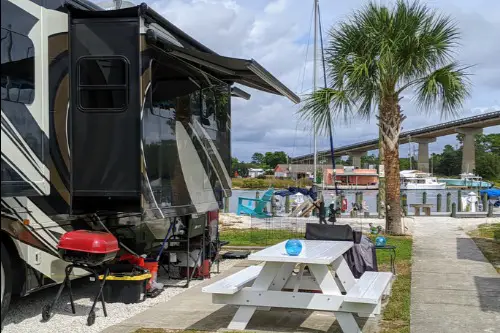
Many people picture RVing as endless campfires and peaceful nights. In reality, setting up and breaking down camp takes work, especially when learning the ropes. Finding sites, dumping tanks, and troubleshooting equipment can feel more stressful than relaxing at first. This gap between expectation and reality frustrates new RVers.
The key is remembering that camping gets easier with experience. Once routines become familiar, the relaxing side shines through. Knowing upfront that there’s a learning curve helps set realistic expectations. Otherwise, frustration can make people feel like they wasted their investment.
11. You Don’t Need to Reserve Ahead of Time
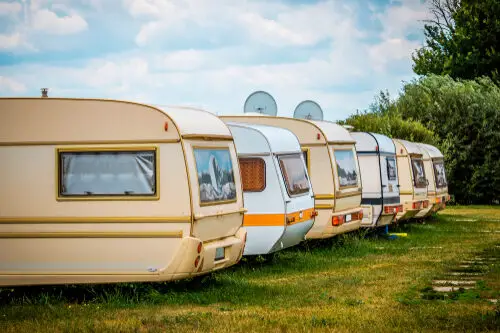
Some people believe they can just show up at a campground and find a spot, like the old days. With the rise in RV ownership, popular locations often book out months in advance. Summer weekends and holidays are especially competitive. Assuming you’ll always find space leads to frustration and last-minute scrambling.
This myth keeps people broke when they have to pay higher rates for the only available sites. It can also force you into places you wouldn’t have chosen otherwise. A little advance planning ensures better spots at better prices. Spontaneity is still possible, but flexibility is key.
12. Upgrades Will Make Everything Perfect
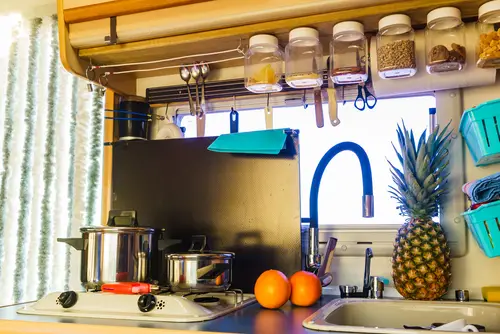
It’s tempting to believe that buying solar panels, fancy stabilizers, or the latest gadgets will solve all your problems. While upgrades can improve comfort, they don’t eliminate the realities of RVing. Many new campers spend thousands on gear before they even know what they truly need. That money could have gone to actual travel experiences.
Starting simple lets you figure out what’s worth the investment. Some upgrades, like surge protectors or tire pressure monitors, are essential. But many others are nice-to-have luxuries. Avoiding the “gear trap” helps you focus on the lifestyle, not just the shopping list.
13. Full-Time RVing Is Cheaper Than a House
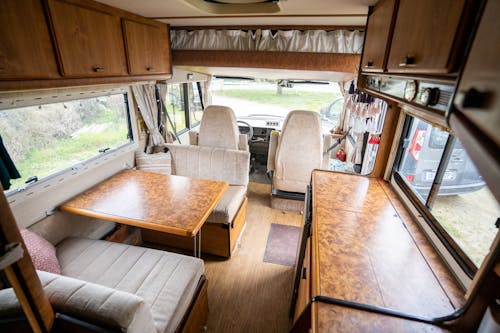
There’s a common belief that living in an RV full-time is automatically cheaper than traditional housing. While some people make it work, costs like fuel, campground fees, insurance, and maintenance add up quickly. Unexpected repairs can hit harder when you’re on the road. For many, it’s not cheaper—it’s just different.
The real benefit of full-time RVing is flexibility and adventure, not guaranteed savings. Treating it like a lifestyle choice rather than a financial shortcut avoids disappointment. Careful budgeting is essential if you plan to go full-time. Believing it’s always cheaper sets up new RVers for financial strain.
This post 13 Camping Myths That Keep New RVers Broke and Frustrated was first published on Greenhouse Black.
